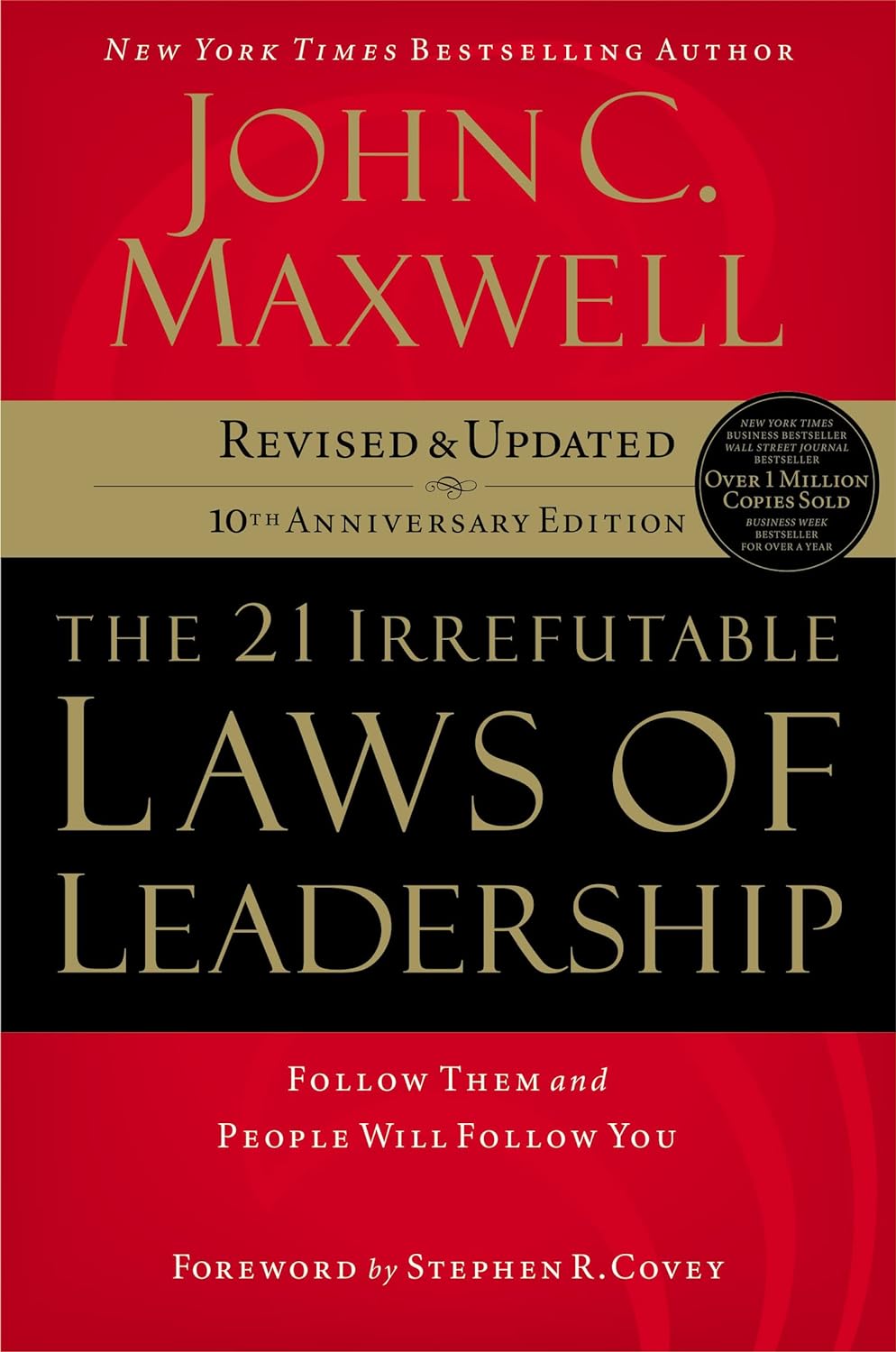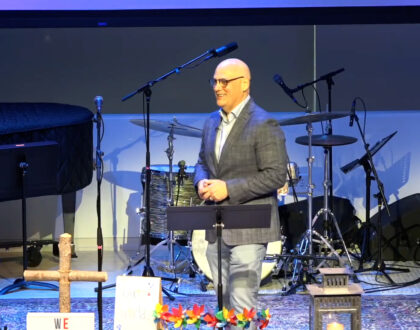Timeless Laws of Leadership

On Sunday, the congregation voted to approve the leadership slate and the proposed 2024-25 operating budget. This new budget reflects a year-over-year growth of 17.7% which is phenomenal! Thank you for making our mission and ministries possible! Please pray for the individuals who have accepted new leadership roles. Installation Sunday will be on June 30 at the 11:00 AM service.
During the month of June, we are talking about “Authentic Leadership & Character.” Recently, I have had conversations with our staff and elders about John Maxwell’s 21 Irrefutable Laws of Leadership. Some of these laws are more relevant to church life than others but I want to share FIVE that I think are very fitting. Think about each of these as they apply to Woodmont and to your own life.
THE LAW OF INFLUENCE
Maxwell’s definition for the Law of Influence is that “The true measure of leadership is influence nothing more, nothing less.” This, of course, is one of John Maxwell’s most famous quotes heard around the world. It’s a great quote, but how often do you take time to ask yourself the big question: “Who are you influencing?” Maybe a bigger question for us to ask is, ‘What type of influence are we offering those who follow us?” Insecure leaders often influence people in such a way that it keeps others down in order to protect their own position of leadership in the group. This is a shame. The best leaders realize that leadership is always about raising people up to their highest potential, even if it means they one day become better leaders than themselves.
THE LAW OF ADDITION
The Law of Addition simply says, “Leaders add value by serving others.” Maxwell says that we add value to others when we truly value them and intentionally make ourselves valuable to them. He says, “90 percent of all people who add value to others do so intentionally.” The most helpful way we do this is to actually get to know the people we are leading, find out their priorities, goals, hopes, and dreams, and then figure out what we can do to assist them in getting where they need to go. Maxwell says, “Inexperienced leaders are quick to lead before knowing anything about the people they intend to lead. But mature leaders listen, learn, and then lead.”
THE LAW OF SOLID GROUND
Maxwell defines The Law of Solid Ground by saying, “Trust is the foundation of leadership.” This is perhaps the greatest challenge leaders face in the 21st century. Too many people are disillusioned with leaders because self-serving leaders have too often abused it. Trust, then, is the most important element in leadership. If you do not have trust, you have nothing to offer. Maxwell says that we build trust “by consistently exemplifying competence, connection, and character,” and that we must “treat trust as our most precious asset.” He later writes, “How do leaders earn respect? By making sound decisions, by admitting their mistakes, and by putting what’s best for their followers and the organization ahead of their personal agendas.” This is because, “No leader can break trust with his people and expect to keep influencing them,” and, as we already know, “Leadership is influence, nothing more.”
THE LAW OF CONNECTION
Maxwell summarizes The Law of Connection by saying, “Leaders touch a heart before they ask for a hand.” Another way to say this is that people will not follow you until they are emotionally bought into the vision you are casting. There is also some tie-in here with the famous quote, “People don’t care how much you know until they know how much you care.” Maxwell says, “You develop credibility with people when you connect with them and show that you genuinely care and want to help them.” To truly connect with people you have to value them, learn about them, and then adapt to who they are. Do not expect people to change themselves in order to follow you. You must change yourself in order to invite them in.
THE LAW OF BUY-IN
The Law of Buy-In says, “People buy into the leader, then the vision.” Maxwell writes, “Many people who approach the area of vision in leadership have it all backward. They believe that if the cause is good enough, people will automatically buy into it and follow. But that’s not how leadership really works. People don’t at first follow worthy causes. They follow worthy leaders who promote causes they can believe in.” If we roll this back to the law of the picture, this means that if your credibility as a leader is questionable at best, you are not going to have people willing to follow the vision you are casting because they doubt you can get them there.
We are blessed with many great leaders here at Woodmont, staff and lay. May we continue to harness that energy, passion, and enthusiasm as we look ahead to the future!
Recommended Posts

New Series – “Timeless Values for a Chaotic World”
May 05, 2025

“The Five Most Important Things Youth Ministry Can Teach All of Us” – Jay Hutchens – May 4, 2025
May 04, 2025

An Easter Mindset & How We See the World
April 30, 2025

